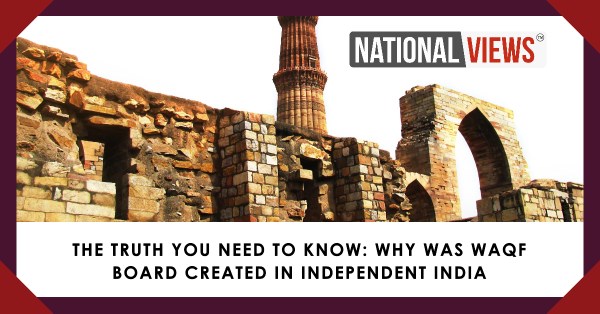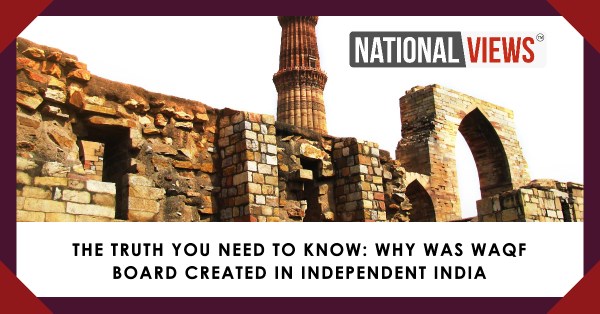The system of Waqf has been recorded in India since the days of the Delhi Sultanate, and as the rule of Muslim rulers expanded, more Waqf properties were created and expanded. The system continued, but there was no legal framework as such. So, why was Waqf Board created in Independent India? The immediate answer is Wakf Board was created in independent India to address several key needs and challenges related to the management and regulation of waqf properties (or wakf properties), but let’s explore it further in detail.
Why Was Waqf Board Created In Independent India? What was the Need?
Here are the primary reasons for the creation of the Waqf Board in independent India:
Need for Regulation:
Prior to the establishment of the Waqf Board, the management of waqf properties was decentralized and often lacked proper regulation. Mutawallis (trustees) were responsible for managing waqf assets. They were required to report to the district judge about the waqf properties under their control. However, this system lacked effective control and oversight. Many mutawallis and trustees did not adhere to the rules governing waqf properties, and there were no penalties for non-compliance.
Like, for instance, conducting the survey before declaring any property as ‘wakf’ is prerequisite under Section 4 of the Wakf Act,1954.
Also Read: All You Need to Know about Waqf Board in India: History, Power, Functions, Council
Legal Framework and Control:
To address these challenges, the Waqf Board was established under legal provisions to enforce stringent rules and regulations governing waqf properties. The Waqf Board consists of elected members from the state, ensuring local representation and oversight.
Yes, the State Wakf Boards were established to manage and administer waqf assets within their respective jurisdictions. Additionally, there is a Central Waqf Council (CWC) composed under the Ministry of Minority Affairs, providing central-level control and guidance.The role of the Central Waqf Council expanded significantly after the 2013 Amendment Act.
The Formation of the Waqf Tribunal for Resolution of Disputes
The Waqf Tribunal was also established to manage disputes related to waqf properties, with members including Class I officers from Civil Services and the District Magistrate. The Waqf Board and associated Waqf Tribunals were established to resolve disputes and grievances related to waqf properties, providing a legal mechanism for addressing conflicts and ensuring fair administration.
P.S: There is a difference between Waqf and a Public Trust created by a Muslim. Any Muslim public trust cannot be amounted as a waqf under the law.
Also Read: All You Need to Know about Waqf Tribunal in Indian Constitution
Overall, the creation of the Waqf Board in independent India was driven by the need to regulate, protect, and properly manage waqf properties in accordance with the principles of charity and social welfare. The establishment of the Waqf Board aimed to ensure transparency, accountability, and effective utilization of waqf assets for the benefit of the Muslim community, aligning with the broader goals of social justice and equitable resource distribution in post-independence India.
Source and Reference – Waqf in India:
- GOI – Ministry of Minority Affairs
- Indian Kanoon – 1954 Act
- The Gazette of India – 1995 Amendement
- The Gazette of India – 2013 Amendment



